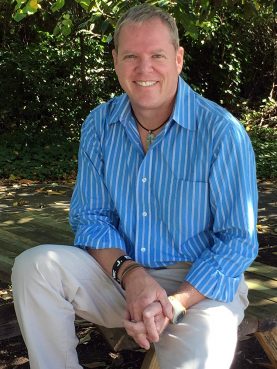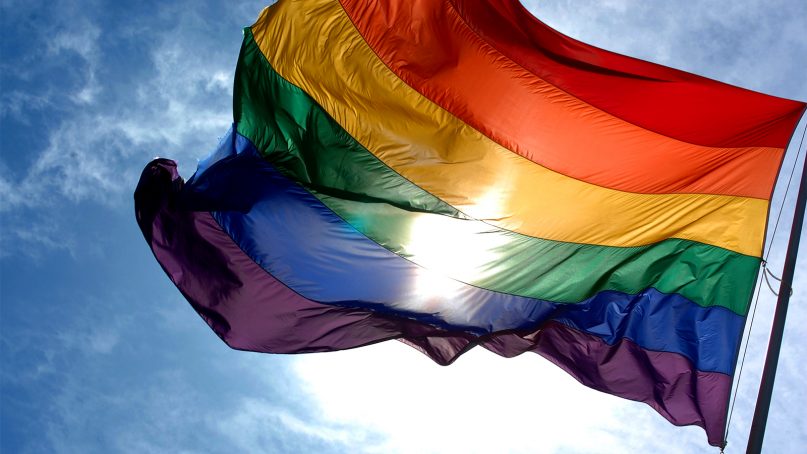(RNS) — In the last few months, the American LGBTQ community has been hit with wave after wave of news on so-called conversion therapy, a thoroughly discredited practice that purports to “cure” people of their homosexuality.
Just weeks ago, a Maryland court upheld the state’s ban on offering such therapy. On Tuesday (Oct. 15), the Church of Jesus Christ of Latter-day Saints announced that it is opposing a proposed rule that would ban conversion therapy in Utah, after LGBTQ activists thought they had secured the church’s blessing on the ban.
In September, we saw McKrae Game, a former leader in the ex-gay movement, come out as gay while expressing deep repentance for the damage he and his peers have caused. But we also learned that real efforts are being made in megachurches to revive and expand “ex-gay” ministries. In New York, one of the country’s gayest cities, the City Council repealed its own ban to prevent a legal challenge by Christian organizations from being used as a test case at the Supreme Court.
In August, North Carolina became the first Southern state to ban conversion therapy, citing the lasting harm its causes to those who undergo it and the misconceptions it spreads.
More than 40 years ago I lived under a black cloud, thinking that who I was, the very heart of me, was unacceptable in the eyes of God and those around me. I happened to grow up in a Reform Jewish community in the 1960s, but my experience is just as common for young people coming of age in a gay-shaming church, synagogue or mosque today. No matter where it happens, it is dehumanizing and is an assault on their God-given dignity. It is, in a word, bullying.
Most clergy I know would recoil at the notion that they or their faith communities have routinely engaged in bullying — but that’s exactly what anti-LGBTQ messaging and policies are: bullying, plain and simple.

McKrae Game. Courtesy photo
The damage wrought by religious anti-LGBTQ bullying is no small thing. Young people are left with a twisted understanding of their human worth; sometimes they become homeless; sometimes they die, pushed to suicide after they are told that who they are is not worthy of God’s love. As McKrae Game said, “It’s a lie. And we have harmed generations of people.”
One might say that faith leaders who promote such immensely harmful teachings knowing their toxic consequences have blood on their hands.
Of course, many religious movements and clergy members have already begun to back away from the hate that was once so commonplace. While that’s welcome, it’s not nearly enough. Too much damage has already been done. As leaders, they must not only model better behavior for their communities — to teach those communities to value all people — but to actively make amends to those who have been harmed and apologize.
Those who belong to traditions or communities that now seek to mitigate that damage have a responsibility to be honest about the extent of the harm, and what healing will require. I serve on the board of the Tyler Clementi Foundation, founded after Tyler’s death by suicide after he was cyberbullied as a freshman at Rutgers University. Over and over again in our anti-bullying work, we have seen the power of a simple, genuine apology.
When bullying isn’t suffered by a single individual or limited to a certain setting or time, when it is instead endemic to a culture and a society, it becomes incumbent on that society to take bold steps to change its culture in such a way to allow healing to start.
In 1995, the Southern Baptist Convention engaged in a historic act of contrition and repentance, apologizing to the African American community for the SBC’s role in slavery and racism, asking forgiveness and pledging to eradicate racism within the convention. It’s time for America’s faith communities to show the same level of contrition and repentance toward their lesbian, gay, bisexual, trans and questioning siblings, and to love them enough to apologize.
The act of apologizing acknowledges and honors the human who has been hurt. Bullying tears people down, but apologies build them up.
In my personal struggle against anti-gay bullying, I was lucky. I ultimately had the support of my father, a good therapist and countless LGBTQ activists. I found love, and I have healed. I’ve been out for over 40 years, married to my wonderful husband, Tim, for nine. But the scars remain, as they do for so many countless others of my LGBTQ siblings.
We need to seek out personal relationships that will foster a change of heart. I’ve heard many Christians say that the personal relationship with Jesus Christ at the center of their faith has changed them. I would encourage those who think gay people need to be changed through coercive therapy to seek a personal relationship with an LGBTQ person in order to be changed themselves.
But it’s not enough to quietly change our personal behavior, or even to work to change individual minds. Leaders of religious communities need to stop dehumanizing LGBTQ people. Then, if they want to move ahead, they must own what they or their traditions have done, and apologize for it.
(Mitchell Gold is a board member of the Tyler Clementi Foundation and co-founder of Mitchell Gold + Bob Williams furniture brand. The views expressed in this commentary do not necessarily represent those of Religion News Service.)





